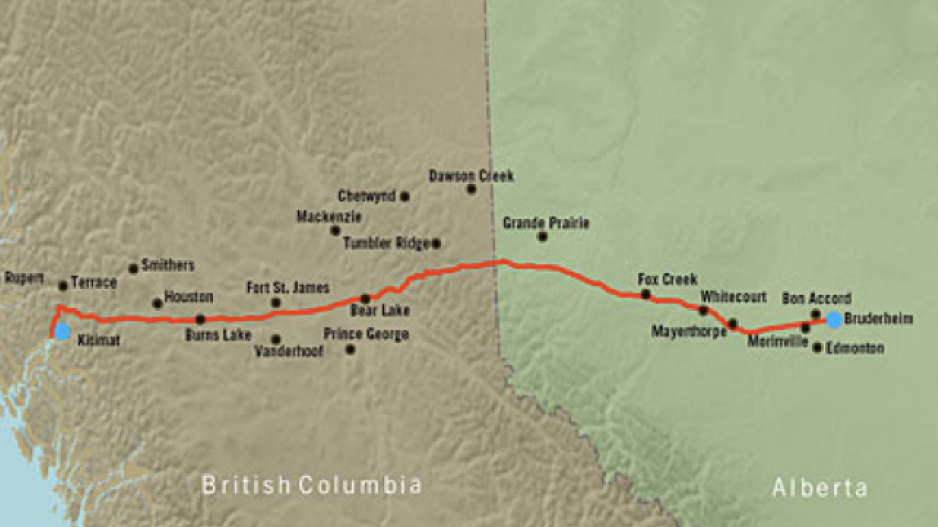The Federal Court of Appeal has dealt what some are describing as a possible death-blow for the Northern Gateway pipeline.
The federal government, the Attorney General of Canada, the Minister of the Environment and Enbridge Inc. (TSX:ENB) failed in its duty to consult seven First Nations councils and bands – along with a number of advocacy associations – according to a 2-1 judgment, with one judge dissenting.
Certificates issued under the Order in Council are thus quashed, sending the project back to the Governor in Council for reconsideration.
Kathryn Harrison, a professor of Political Science at the University of British Columbia, believes the ruling means the Enbridge pipeline is now in serious jeopardy.
“It’s pretty close to a death blow,” said Harrison. “Mortally wounded maybe.”
Robin Junger, a lawyer specializing in aboriginal and environmental law with McMillan LLP, said it was the consultation by federal officials after the review panel report was released that the court said was “short of the mark.”
“Its clear the court’s concern here was not the National Energy Board (an independent federal regulatory tribunal) process itself or Cabinet’s decision making,” added Junger.
Junger noted this is not the first file where the federal government has struggled with the final phase of the consultation process after a review panel.
“It is almost certainly an area that will be getting further attention as the recently announced federal reviews of the environmental assessment process are undertaken.”
In a written statement, John Carruthers, the president of Northern Gateway said they will continue pursuing the project and are “fully committed to building this critical Canadian infrastructure project while at the same time protecting the environment and the traditional way of life of First Nations and Métis peoples and communities along the project route.”
The ruling outlined Canada failed during Phase 4 of the review process – the phase which followed the release of a report of the Joint Review Panel.
The Crown was to then engage in consultation concerning that report but failed to “engage, dialogue and grapple” with First Nations concerns.
“We conclude that Canada offered only a brief, hurried and inadequate opportunity in Phase IV – a critical part of Canada’s consultation framework to exchange and discuss information and to dialogue,” the court writes in its ruling.
“The inadequacies —more than just a handful and more than mere imperfections – left entire subjects of central interest to the affected First Nations, sometimes subjects affecting their subsistence and well-being, entirely ignored.”
The ruling further noted that intention to amend, supplement or provide meaningful feedback concerning the conditions imposed by the Joint Review Panel was not sufficient.
“Missing was a real and sustained effort to pursue meaningful two-way dialogue. Missing was someone from Canada’s side empowered to do more than take notes, someone able to respond meaningfully at some point.”
Entire subjects of interest to affected First Nations “were entirely ignored”.
Harrison added she expected Prime Minister Justin Trudeau will have to address the issue directly now, given during the election campaign he called for a tanker ban on the B.C. coast but also expressed an interest in getting more Canadian resources to the international market.
“I think in some ways it’s a moment of truth, he’s been saying things on both sides. What do you really think here?”
The Northern Gateway Project is two proposed 1,178 kilometre pipelines. One pipeline is intended to transport oil from Bruderheim, Alberta to Kitimat.
At Kitimat, the oil would be loaded onto tankers for delivery to export markets. The other pipeline would carry condensate removed from tankers at Kitimat to Bruderheim for distribution to Alberta markets. If built, the project could potentially operate for 50 years or more.




